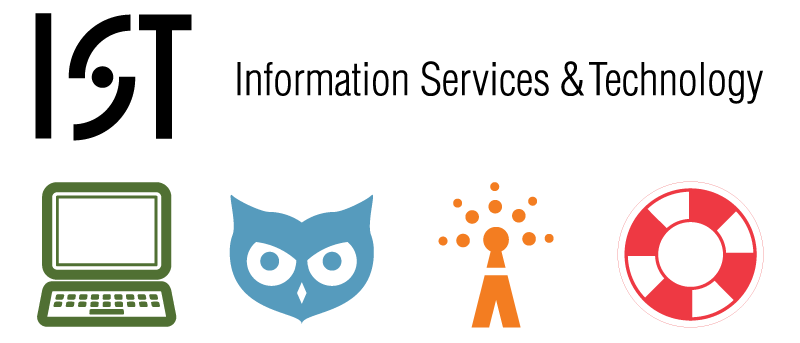
Evolving list of service offerings
The key to providing the best service for MIT users of Linux in general and Athena in particular is to focus on the few things that:
- IS&T is the most appropriate provider.
- answer needs that are unique to MIT.
The challenge is to provide useful service in the context of:
- a broad continuum of system customization,
- an extreme diversity of Linux distributions and versions,
- a diverse set of use cases
- a tremendous number of software applications, services and utilities.
IS&T Provides:
- IT Services, for example Email.
- Software, for example, a site license for Red Hat Enterprise Linux.
- Instruction in the use of services, and software; in how to install software.
- Problem Solving when users call with questions.
- Referrals outside IS&T for 1-4 above when appropriate.
IS&T offerings fit into two classes of service:
- Centrally Managed – IS&T specifies, acquires and integrates the hardware, OS platform, the services and applications.
- Personally Managed – Following the example of the Centrally Managed configurations, additional customization is done to a greater or lesser extent depending on the owner's need.
Owners:
Departments, Labs and Centers have demonstrated needs for unique software, service, hardware, or physical access requirements that are amortized across a group of systems. We provide guidance in the common elements, and some assistance getting the DLC to the point where their expertise can ramp up and make the environment successful.
Individual users ask for a unique, custom configuration. We provide a common set of basic OS, Application, and Service offerings upon which the user builds. We provide guidance in the basics of avoiding problematic configurations or practices.
The Use Cases fall into four broad categories:
- General Purpose Computing, including:
- Connectivity/Communication
- Document Preparation
- Courseware i.e. Applications tailored for use in teaching.
- Often consistency, e.g. the same app. version for all students in a class is important.
- Research i.e. Applications tailored to scientific use.
- Special Purpose Computing which might involve:
- Distributed Computing
- Academic Computing Testbed
- Collaborative Spaces
- High Performance Computing
- High Performance Graphics
- Virtualized Computing Environments
For Individuals desiring General Purpose Computing IS&T Provides:
- Athena General Use Cluster systems, and instruction in getting online and using the software and services that are there.
- Access to some OS, utility and applicaton software with basic instruction in installation, use, and basic problem solving. Outside a narrow band of the most popular such software, IS&T provides referral to outside sources.
For Courseware and Research applications, IS&T does not provide the applications, nor instruction in the applications, but instead provides assistance in getting working infrastructure in place, be it IS&T-provided general use infrastructure, or DLC owned infrastructure, to the extent that the application can be run on General Purpose rather than special purpose infrastructure.
For Special Purpose Computing, IS&T sometimes provides special purpose infrastructure, but generally serves in a role of identifying where existing general purpose offerings can be applied to special purpose computing, or a referral to special purpose experts.
Infrastructure almost always consists of
- A hardware platform.
- An OS platform.
- Some or all of the following Key services:
A. Network
B. Kerberos/Certificates
C. Printing
D. 3rd Party Software
E. Email/Calendaring
F. Instant Messaging
G. Web Browser
H. Security/Software Update
I. VPN
J. Backup
K. Filesystem/AFS
L. Remote access
IS&T publishes recommended Laptop/Desktop/and Server configurations.
IS&T provides OS software, update, installation instruction, usage instruction, basic problem solving for key OS platforms: MacOS, Windows, Red Hat Enterprise Linux, and Ubuntu Linux.
IS&T provides a knowledge base to house and grow a collection of answers to previously asked questions.
IS&T should also provide a communication point for Linux users whose need falls outside the key OS platforms to share knowledge, and to house and grow a collection of answers to questions that are less basic, but no less important to the more diverse Linux and Special Purpose computing communities at MIT.